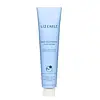What's inside
What's inside
 Key Ingredients
Key Ingredients

 Benefits
Benefits

 Concerns
Concerns

 Ingredients Side-by-side
Ingredients Side-by-side

Water
Skin ConditioningKaolin
AbrasiveIllite
AbrasiveGlycerin
HumectantMel
EmollientAloe Barbadensis Leaf Juice
Skin ConditioningCetearyl Olivate
Sorbitan Olivate
EmulsifyingPropolis Cera
AntiseborrhoeicBentonite
AbsorbentAlcohol
AntimicrobialPelargonium Graveolens Oil
MaskingPhenoxyethanol
PreservativeDecyl Glucoside
CleansingXanthan Gum
EmulsifyingEthylhexylglycerin
Skin ConditioningBenzoic Acid
MaskingSodium Hydroxide
BufferingDehydroacetic Acid
PreservativePotassium Sorbate
PreservativeCitric Acid
BufferingWater, Kaolin, Illite, Glycerin, Mel, Aloe Barbadensis Leaf Juice, Cetearyl Olivate, Sorbitan Olivate, Propolis Cera, Bentonite, Alcohol, Pelargonium Graveolens Oil, Phenoxyethanol, Decyl Glucoside, Xanthan Gum, Ethylhexylglycerin, Benzoic Acid, Sodium Hydroxide, Dehydroacetic Acid, Potassium Sorbate, Citric Acid
Water
Skin ConditioningGlycereth-26
HumectantPEG-40 Hydrogenated Castor Oil
EmulsifyingHamamelis Virginiana Water
AstringentNiacinamide
SmoothingAmmonium Acryloyldimethyltaurate/Vp Copolymer
Coco-Caprylate
EmollientPentaerythrityl Tetraisostearate
EmollientPhenoxyethanol
PreservativeTrideceth-9
EmulsifyingBisabolol
MaskingPEG-5 Ethylhexanoate
EmulsifyingPanthenol
Skin ConditioningRosmarinus Officinalis Leaf Oil
MaskingLavandula Angustifolia Oil
MaskingBenzoic Acid
MaskingDehydroacetic Acid
PreservativeEthylhexylglycerin
Skin ConditioningChamomilla Recutita Flower Oil
MaskingCitric Acid
BufferingSodium Carrageenan
Emulsion StabilisingZingiber Officinale Root Extract
MaskingSea Salt
AbrasiveLimonene
PerfumingLinalool
PerfumingWater, Glycereth-26, PEG-40 Hydrogenated Castor Oil, Hamamelis Virginiana Water, Niacinamide, Ammonium Acryloyldimethyltaurate/Vp Copolymer, Coco-Caprylate, Pentaerythrityl Tetraisostearate, Phenoxyethanol, Trideceth-9, Bisabolol, PEG-5 Ethylhexanoate, Panthenol, Rosmarinus Officinalis Leaf Oil, Lavandula Angustifolia Oil, Benzoic Acid, Dehydroacetic Acid, Ethylhexylglycerin, Chamomilla Recutita Flower Oil, Citric Acid, Sodium Carrageenan, Zingiber Officinale Root Extract, Sea Salt, Limonene, Linalool
 Reviews
Reviews

Ingredients Explained
These ingredients are found in both products.
Ingredients higher up in an ingredient list are typically present in a larger amount.
Benzoic Acid is used to preserve and adjust the pH of products.
The antimicrobial property of Benzoic Acid helps elongate a product's shelf life. Its main role is to reduce fungi growth and is not found to be effective at fighting bacteria. Therefore Benzoic Acid is always added along with other preservatives.
In its pure form, Benzoic Acid looks like a white crystalline solid. It has slight solubility in water.
The name of Benzoic Acid comes from gum benzoin, which used to be the sole source of deriving this ingredient. Benzoic Acid is the most simple aromatic carboxylic acid.
Benzoic Acid is naturally occuring in strawberries, mustard, cinnamon, and cloves. It has a slight scent but is not considered to be a fragrance.
Learn more about Benzoic AcidCitric Acid is an alpha hydroxy acid (AHA) naturally found in citrus fruits like oranges, lemons, and limes.
Like other AHAs, citric acid can exfoliate skin by breaking down the bonds that hold dead skin cells together. This helps reveal smoother and brighter skin underneath.
However, this exfoliating effect only happens at high concentrations (20%) which can be hard to find in cosmetic products.
Due to this, citric acid is usually included in small amounts as a pH adjuster. This helps keep products slightly more acidic and compatible with skin's natural pH.
In skincare formulas, citric acid can:
While it can provide some skin benefits, research shows lactic acid and glycolic acid are generally more effective and less irritating exfoliants.
Most citric acid used in skincare today is made by fermenting sugars (usually from molasses). This synthetic version is identical to the natural citrus form but easier to stabilize and use in formulations.
Read more about some other popular AHA's here:
Learn more about Citric AcidDehydroacetic Acid is fungicide and bactericide. It is used as a preservative in cosmetics. Preservatives help elongate the shelf life of a product.
Dehydroacetic Acid is not soluble in water.
Ethylhexylglycerin (we can't pronounce this either) is commonly used as a preservative and skin softener. It is derived from glyceryl.
You might see Ethylhexylglycerin often paired with other preservatives such as phenoxyethanol. Ethylhexylglycerin has been found to increase the effectiveness of these other preservatives.
Phenoxyethanol is a preservative that has germicide, antimicrobial, and aromatic properties. Studies show that phenoxyethanol can prevent microbial growth. By itself, it has a scent that is similar to that of a rose.
It's often used in formulations along with Caprylyl Glycol to preserve the shelf life of products.
Water. It's the most common cosmetic ingredient of all. You'll usually see it at the top of ingredient lists, meaning that it makes up the largest part of the product.
So why is it so popular? Water most often acts as a solvent - this means that it helps dissolve other ingredients into the formulation.
You'll also recognize water as that liquid we all need to stay alive. If you see this, drink a glass of water. Stay hydrated!
Learn more about Water